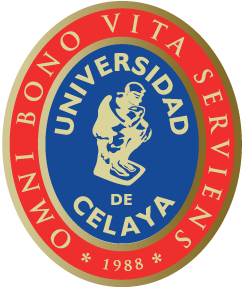The University of Celaya joins the actions for equality and peace building in the city.
The University of Celaya, in keeping with its commitment to train women and men with the highest educational quality to develop their capacity to build a better country, has signed the agreement "For equality and peace building" with the Municipal Institute of Women of Celaya (INSMUJERES) and 15 other educational institutions of Celaya to participate in the implementation of affirmative actions that promote, safeguard and respect the human rights of women and men, through a cross-cutting and inter-institutional work.
The signing of this agreement contemplates the generation of projects to achieve maximum development in the training and specialization of human resources, in order to achieve egalitarian spaces between women and men, safe and peaceful spaces, free of violence, and to provide women and men with tools for their full development.
Some of the topics on which the inter-institutional cross-cutting roundtables will work are:
- Gender equality that favors and promotes social development for the people of Celaya.
- Training for the full development of women and men, as well as public administration agencies.
- The generation of violence-free spaces and the sensitization of the community in spaces for peace.
The signing of this agreement was held in the framework of International Women's Day and took place at the Casa del Diezmo in Celaya. Javier Mendoza Márquez, mayor of the city, as a witness of honor, the rectors and representatives of the universities signed the agreement: Colegio Arturo Rosenblueth, Instituto Educativo Rosa González de Carmona, Instituto de Estudios Superiores del Centro de México, Instituto Tecnológico Nacional de México en Celaya, Tecnológico de Roque, Universidad de Celaya, Universidad Continente Americano, Universidad de Guanajuato, Universidad de Centro del Bajío, Universidad Lasallista Benavente.
The Universidad Latina de México, Universidad Pedagógica Nacional, Universidad Tecnológica Laja Bajío, UNITESBA, Universidad Virtual del Estado de Guanajuato and INAEBA also signed.
Thus, the University, through its research processes and links with society, is an agent of social transformation and behavioral changes of citizens from the perspective of theoretical studies and training actions that integrate the social actors involved in the subject.

